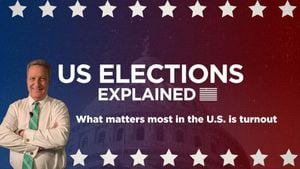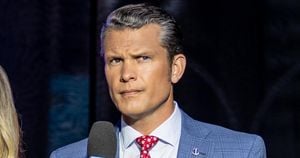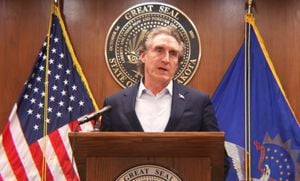A Florida city recently voted to remove fluoride from its drinking water, citing the influence of Robert F. Kennedy Jr. as one of the reasons for their decision. The Winter Haven city commission made this notable move on Tuesday, passing the resolution with a narrow 3-2 vote. The commission aims to implement the change by January 1 of next year or as soon as practically possible, reflecting growing tensions around health policy and community autonomy.
Fluoride has long been debated. Supporters argue it prevents tooth decay, particularly among children, by improving oral health. Critics like Kennedy, known for his controversial anti-vaccine stance, have championed the idea of fluoride being harmful, labeling it as government overreach. A commissioner voiced the concern, saying, "The government really should not be involved in healthcare, or what goes in..." This statement captures the sentiment leading to the ban—an increasing number of citizens advocating for less government regulation over personal and public health decisions.
Vice President Kamala Harris has not shied away from criticizing Kennedy's potential influence on health policies should Trump win another term. During recent remarks, she expressed her vehement disapproval, dubbing him the "last person" who should be considered for public health leadership. Harris points to Kennedy's history of promoting questionable science and conspiracy theories, stating, "He [Trump] has indicated...someone who has routinely promoted junk science." Her comments stem from concerns about how Kennedy's views could jeopardize public health should he gain power.
Indeed, Kennedy's reputation is shaped significantly by his stance against vaccines. Despite sometimes denying the anti-vaccine label, his assertions connecting vaccinations to autism and his belief in the notion of "no safe and effective vaccine" have raised red flags among health experts. There has been growing anxiety around Kennedy's sway, particularly after he claimed Trump promised him control over public health agencies if he were to become part of another Trump administration.
The potential ramifications of Kennedy's involvement are alarming to many health professionals. Experts have already stated their concerns over his lack of professional qualifications related to public health policy. One prominent voice pointed out some of the tragic outcomes resulting from his previous advocacy against vaccinations, particularly referencing the measles outbreak in Samoa which resulted from similar campaigns he led.
During this time of heightened awareness around public health, the role of misinformation becomes more pronounced. With worries over both the overload of information and misinformation circulating, such debates amplify. The public's perception of health policy is increasingly informed by figures like Kennedy, which can sway opinions and impact communal health decisions across the board.
Reflecting on this broader picture, it's evident the consequences of such shifts stretch beyond individual choices—they pose questions about the overall direction of public health strategy. Cities like Winter Haven are illustrating how personal beliefs and political influences can reshape local health policies, emphasizing the complex interplay between governance, public health, and community advocacy.
Therefore, as communities evaluate their health policies, attention remains focused on influential figures like Kennedy. Are they promoting science-backed policies, or are they steering public health toward potentially dangerous territory? The answer to this could very well dictate the health outcomes for generations to come.
With this Florida city's decision as one case study, it becomes clear the public is increasingly pulling at the threads of well-established health guidelines. If prominent voices continue to gain traction against longstanding public health measures, the future of health policy within these communities might see more drastic changes than previously thought.



